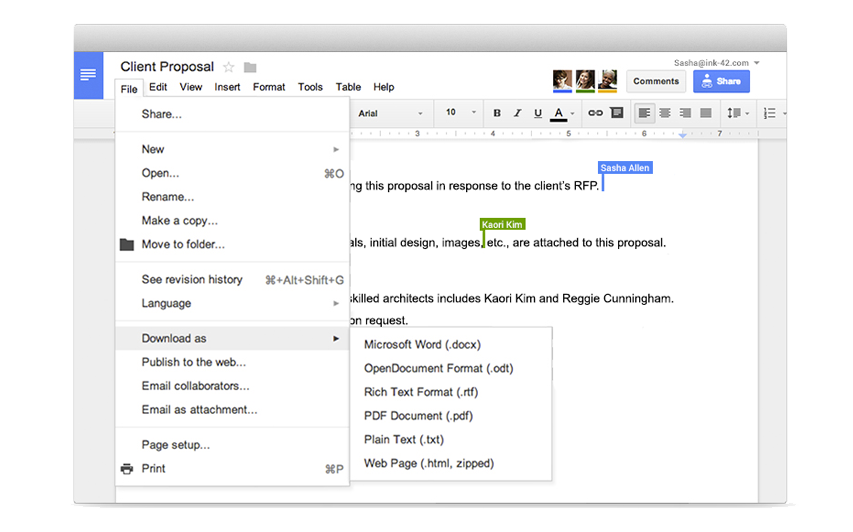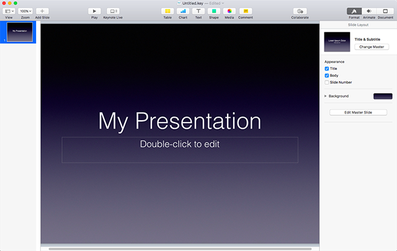Almost everywhere around the world, the role of enhancing office productivity is carried out by Microsoft Office tools. There’s no denying the fact that the Office suite will never outlive its usage, especially, when it comes to various products in its suite that enables several features and ultimately, boosts productivity for its users. And with the arrival of Office 365 that works on the cloud, the popularity of Microsoft’s software has only increased.
However, there are many people who may not need the features offered by Microsoft Office. Moreover, using the software to its full potential requires a good amount of training. In case, you can’t invest that time, a large part of the features offered by the MS Office will remain untapped and unexplored. Not to mention that for an individual or a small business, it’s a significant amount to pay for using the software.
This has led to the creation of several new avenues. Thanks to a wide range of Office alternatives available, you can opt from free software to an open-source one or get the ability to use it on your smartphone too. So, if you are also looking for free Office software, then we have curated a list of best options available for your convenience. Do note that some of the software mentioned below might have a paid version too. However, we’d only focus on the free version.
Table of Contents
1. FreeOffice

FreeOffice sits right at the top among various free Office suite. It has all the elements that you might be looking for, be it a spreadsheet software, presentation maker, or document creator. Of course, the makers have their own naming convention, as Microsoft Word becomes TextMaker, Excel becomes PlanMaker, and Powerpoint is denoted as Presenter. The SoftMaker FreeOffice supports all forms of Microsoft files, and is compatible with the latest formats too. Moreover, the interface is also similar to the Office as you could choose between Ribbon and Classic UI, making it easier to get used to. There’s also support for touchscreen interfaces. Overall, if you are looking for a simple, no-nonsense software for working with office software, then FreeOffice ticks all the right boxes while being free.
Pros
- Easy to use and quite responsive
- Ability to convert files to PDF and Epub formats
- Ideal for beginners or small businesses
Cons
- For advanced features, you’ll need to opt for SoftMaker Office
2. WPS Office
WPS Office is a popular office software, especially for mobile devices. It’s made up of three programs: Writer, Presentation and Spreadsheet, which, as you could guess, replicates the three most popular Office tools. It also supports PDF format and can let you edit PDF files too. WPS Office also includes a cloud sync (up to 1GB space available for free users) feature that allows its users to sync the document across various platforms. Yes, along with Android and iOS, the software is available for Windows, Linux, and as a web app too. Boasting over 250million users, the WPS office by Kingsoft is easily the most versatile and feature-rich Microsoft Office alternative.
Pros
- The free version has most of the standard features
- Various in-built templates
- Works across all sorts of devices
Cons
- The free version has ads
- Powerful PDF-editing features are available in the paid versions
3. LibreOffice
If you’re looking for open-source Office software, then LibreOffice is easily the best recommendation. It’s the successor to the popular open-source Office editor, OpenOffice. Six different programs make up the LibreOffice suite – ‘Writer’ for document processing, ‘Impress’ for presentations, ‘Calc’ for spreadsheets, ‘Bases’ for databases, ‘Math’ for formula calculations, and ‘Draw’ for vector graphics editing. In case you don’t like Microsoft’s proprietary file formats, then you’d also appreciate a broader range of non-Microsoft formats offered by the software. Overall, you can say that LibreOffice is able to do almost everything that MS Office can do, while being free and open source.
Pros
- A vast number of document formats that are regularly updated
- No need for internet connection
Cons
- Need to change default document formats
4. Google G Suite

Next in the list is Google Drive, which remains the most useful tool nowadays for office purposes and other tasks. It provides for the creation of docs, spreadsheets, presentations, and many more such important elements. The best part about Google Drive is that it retains the core of Office suite, and can work both online and offline. Also, real-time or autosave saves you the extra effort of manually saving files. All the data remains stored even if your device is accidentally shut down. Thanks to cloud functionality, you could access your files from anywhere in the world and on any device, and work on them simultaneously with others. Lastly, it provides a free storage option of up to 16GB, which suits most of the purpose.
Pros
- You can work both online and offline.
- Autosave avoids any loss of data.
- Real-time file sharing and access to multiple people, with defined roles.
Cons
- Businesses will need to opt for paid plans for using real-time collaboration and other such features
5. Apple iWork

Most of the late 20th century has witnessed the rise of the two biggest tech giants – Apple and Microsoft. And while Apple continued to focus on the unison of hardware and software as compared to Microsoft, which focused on the latter, Apple does have an Office suite which is available for multiple platforms, if iCloud is being used. The addition of the office suite to multiple platforms has made the life of Mac users a whole lot easier. As they can now easily work with various MS Office files. They can edit the documents in any of the following options – Keynotes, Pages, and Numbers. The only thing that might go against the Apple iWork is that it might require a bit of a learning curve and that you’ll need to use it online.
Pros
- It can be used across devices with iCloud backup
- Exporting and creating new documents is quick and easy
Cons
- Might require some getting used to
- Can’t work offline
6. Polaris Office
If you have used Samsung handset of late, chances are high that you might have already stumbled upon Polaris Office. It’s rightly deemed as the cross-platform office suite as it is compatible with all forms of Office documents, be it MS Word, Excel, or PowerPoint. Further, it can be synced with various cloud platforms, including Dropbox, Microsoft OneDrive, Amazon Cloud Drive, and Google Drive. Similar to other cloud-backed Office software, Polaris Office supports collaborative editing functionality. One of the most unique features about this MS Office alternative is that it comes with some interesting AI-powered features which adapt to your usage behavior.
Pros
- Boasts advanced features, backed by AI
- 1GB of free storage, which when exhausted can be substituted for cloud storage.
- Works on both mobile devices and PCs
Cons
- Can only work on a single device in the free plan
7. Dropbox Paper

Dropbox, initially, was a cloud storage service that allowed users to store important files and documents making them accessible anywhere and everywhere. Having received certain upgrades, which is free, Dropbox now also allows its users to collaborate in real-time on a document and share the files instantly. It’s akin to Google Drive, though it works the best for text-based documents only. So if you are looking for a cloud-enabled word processor that supports real-time collaboration, then Dropbox Paper could prove to be a good choice. However, if you are looking for Excel-like features, then we’d suggest you go for the aforementioned options.
Pros
- 2GB of cloud storage
- Offers distraction-free writing environment
- Works on all platforms
Cons
- Needs Internet connection
- Only for people who want a basic word processor
Bottomline
It is quite easy for a novice to get lost in the pool of features, which Microsoft Office suite offers. While you might want to go for the Office software since it’s the most popular, a bit of research can save you the extra dollars, And once you acquaint yourself with the alternative options, you surely wouldn’t regret that. It boils down to the nature of the work. If you have internet access and need real-time collaboration features, then there’s no better option than Google G Suite. In case you wish to work offline, then options like Free Office and Libre Office are what you need. Then there’s WPS Office, which is a must-have product if you want to access Office across multiple devices.
If you’re still unable to decide, the below-mentioned tabular comparison should help you arrive at a conclusion:
| Office Software |
Multi-platform support |
Cloud functionality |
File support |
PDF and EPUB support |
| FreeOffice |
Yes |
No |
Yes |
Yes |
| WPS Office |
Yes |
Yes |
Yes |
Yes |
| Libre Office |
Yes |
Yes |
Yes |
Yes |
| Google Drive |
Yes |
Yes |
Yes |
Only PDF |
| Apple iWork |
No |
Yes |
Yes |
Yes |
| Polaris Office |
Yes |
Yes |
Yes |
Only PDF (with the premium version) |
| Dropbox paper |
Yes |
Yes |
No |
Yes |




![10 Best Free and Open-Source Landscape Design Software in 2024 [Updated] SaaSworthy Blog Header](https://images.saasworthy.com/blog_latest/wp-content/uploads/2021/04/Blog-Header-Image.png)

